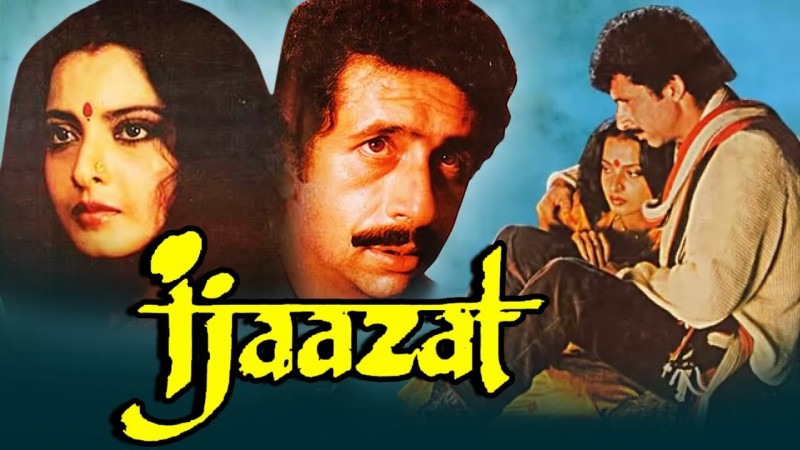
Through the weaving of emotions that resonate across cultures, music has the unmatched power to transcend time and boundaries. In the Gulzar-directed film "Ijaazat" from 1987, one such hypnotic transformation can be seen. We are taken on a journey through emotions by the melancholy and nostalgia-inducing song "Khali Haath Shaam Ayi," which is incredibly beautiful and haunting. Nevertheless, many people might not be aware that S.D. Burman's Bengali song "Malakhani Chilo Hathe" is where this soul-stirring melody's origins can be found. In-depth analysis of "Khali Haath Shaam Ayi"'s fascinating development and relationship to its Bengali forerunner is provided in this article.
With its intricate storyline and soulful melodies, "Ijaazat" is regarded as a poetic masterpiece. 'Khali Haath Shaam Ayi', one of its standout musical compositions, stands out as a moving depiction of heartbreak and separation. The sorrow of parting and the sour-sweet memories left behind are captured in the song. However, S.D. Burman's composition of "Malakhani Chilo Hathe," a piece of Bengali music, is where this song's roots can be found.
The song "Malakhani Chilo Hathe," written by S.D. Burman, was featured in the Bengali play "Sri Sri Harinath Jatra." The audience was captivated by this melody because it resonated with the feeling of separation. Its evolution began when the eerily lovely song cemented its place in the collective memory.
Gulzar, who is renowned for his ability to emote through language, understood "Malakhani Chilo Hathe's" appeal to all people. He made the decision to reinterpret the Bengali song's essence in the context of "Ijaazat." The end result was the song "Khali Haath Shaam Ayi," which remained true to the spirit of the original while being modified to fit the plot of the movie.
A masterwork of lyrical and musical synthesis is "Khali Haath Shaam Ayi." The lyrics by Gulzar are deeply poetic, and they blend flawlessly with the music by R.D. Burman. The song paints a moving picture of separation by capturing the emotions of longing and heartbreak. Bollywood fans gave the song "Malakhani Chilo Hathe" a new place in their hearts.
The song "Khali Haath Shaam Ayi" breaks down language barriers and demonstrates the ability of music to unite people from different linguistic and cultural backgrounds. The musical genius of R.D. Burman and Gulzar seamlessly merged with the spirit of S.D. Burman's original creation. The song became a symbol of how art can unite people and arouse feelings that have a universal resonance.
The song "Khali Haath Shaam Ayi" has a permanent place in the history of Bollywood music thanks to its inclusion in the film "Ijaazat." Its heartbreaking melody and moving lyrics made a lasting impression on listeners. The song's capacity to arouse feelings of longing, separation, and nostalgia shows how timeless its composition is.
The development of "Khali Haath Shaam Ayi" from "Malakhani Chilo Hathe" by S.D. Burman is a prime example of the profound nature of musical creativity. It illustrates the fact that feelings are universal and that art can transcend linguistic and cultural barriers. In addition to honoring the musical brilliance of its authors, "Ijaazat" (1987) also celebrates the ability of art to bring people from different backgrounds together. We are reminded that the echoes of a Bengali tune can find new life and resonance in the tapestry of Bollywood's musical legacy as we lose ourselves in the eerie melody of "Khali Haath Shaam Ayi" as we listen to it.
Bollywood's Grand Gala: 'Naseeb' (1981) and the Unforgettable 'John Jani Janardhan'
From Hollywood to Bollywood: 'Abhimaan' (1973) Weaves Indian Dreams Inspired by 'A Star Is Born'
'Mera Joota Hai Japani' Surprises Audiences in Deadpool's Opener